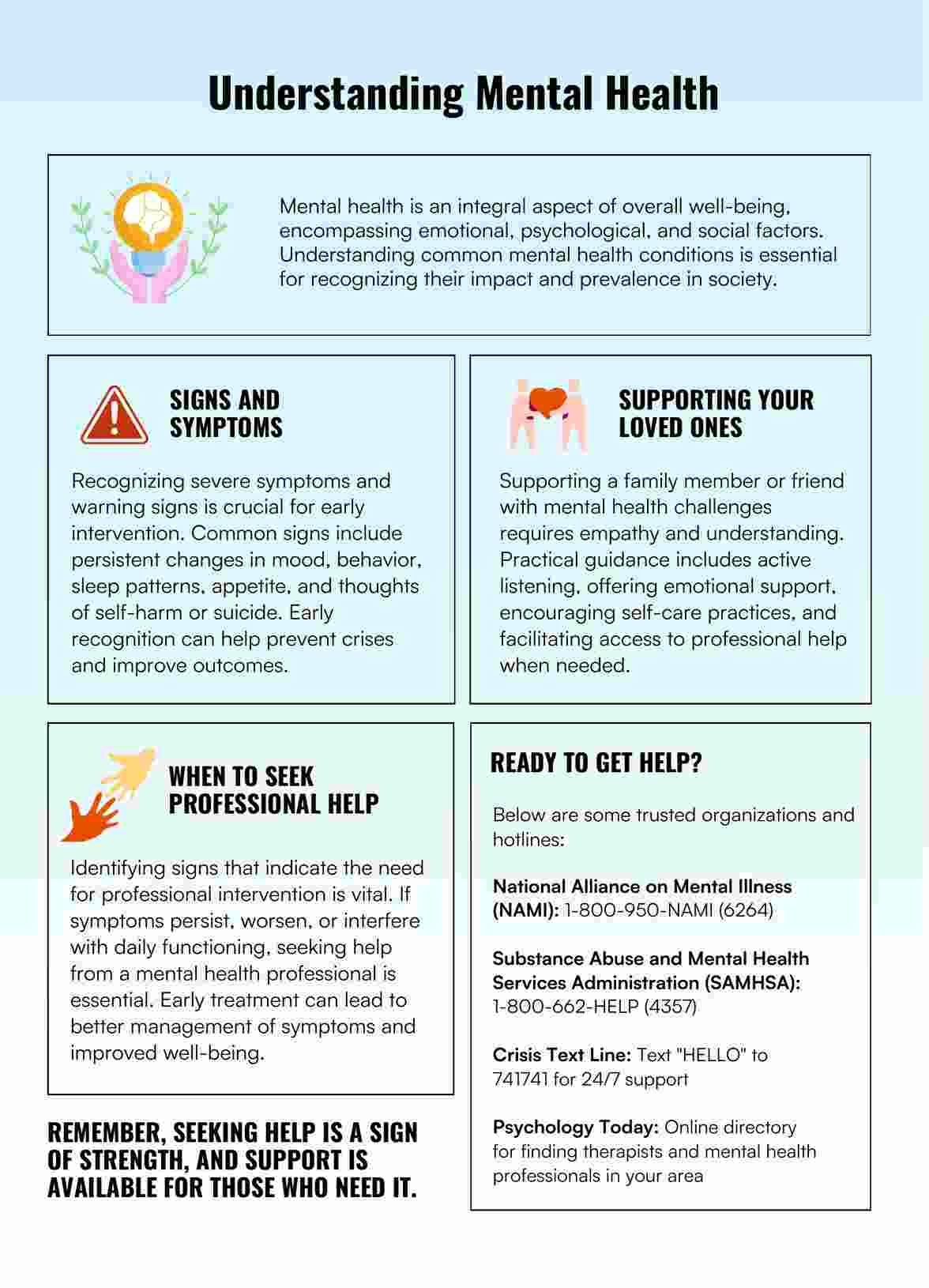Common signs include persistent sadness, changes in sleep or appetite, loss of interest in activities, mood swings, difficulty concentrating, withdrawal from social interactions, and thoughts of self-harm or suicide.

Mental Health Handout
Learn key insights into mental health conditions, warning signs, and resources. Access a free Mental Health Handout today!
Use Template
Mental Health Handout Template
Commonly asked questions
Offer empathy and active listening, encourage professional help-seeking, educate yourself about their condition, avoid judgment, provide practical support with daily tasks, and promote self-care practices.
To increase awareness about mental health in your community, consider organizing educational workshops, hosting community events focused on mental health topics.
EHR and practice management software
Get started for free
*No credit card required
Free
$0/usd
Unlimited clients
Telehealth
1GB of storage
Client portal text
Automated billing and online payments











